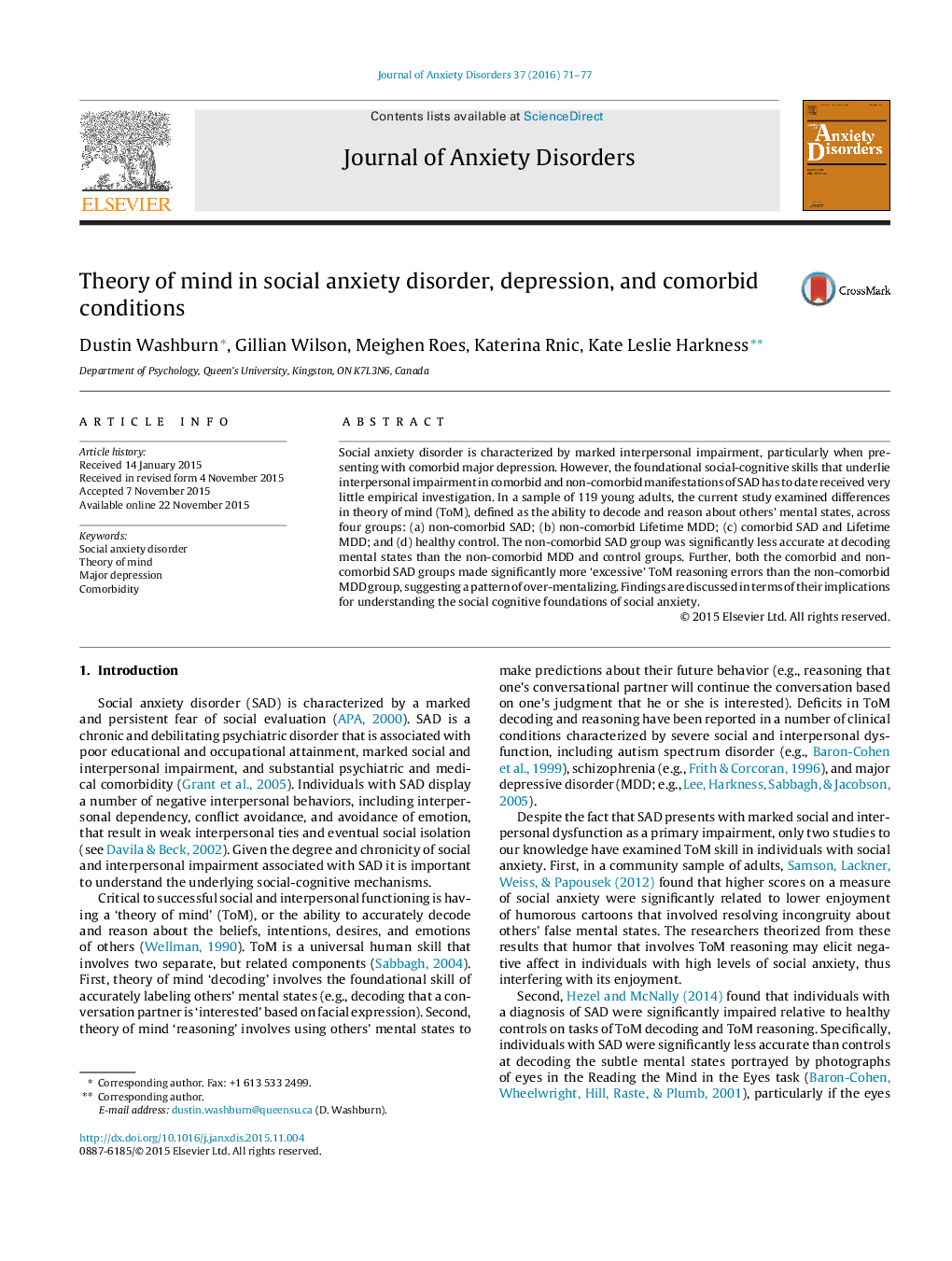| کد مقاله | کد نشریه | سال انتشار | مقاله انگلیسی | نسخه تمام متن |
|---|---|---|---|---|
| 909227 | 1473041 | 2016 | 7 صفحه PDF | دانلود رایگان |
• We examined theory of mind in social anxiety disorder and lifetime depression.
• Socially anxious individuals performed significantly worse than depressed individuals.
• Socially anxious individuals made more excessive errors than depressed individuals.
• Fostering optimal levels of social sensitivity may improve interpersonal impairment.
Social anxiety disorder is characterized by marked interpersonal impairment, particularly when presenting with comorbid major depression. However, the foundational social-cognitive skills that underlie interpersonal impairment in comorbid and non-comorbid manifestations of SAD has to date received very little empirical investigation. In a sample of 119 young adults, the current study examined differences in theory of mind (ToM), defined as the ability to decode and reason about others’ mental states, across four groups: (a) non-comorbid SAD; (b) non-comorbid Lifetime MDD; (c) comorbid SAD and Lifetime MDD; and (d) healthy control. The non-comorbid SAD group was significantly less accurate at decoding mental states than the non-comorbid MDD and control groups. Further, both the comorbid and non-comorbid SAD groups made significantly more ‘excessive’ ToM reasoning errors than the non-comorbid MDD group, suggesting a pattern of over-mentalizing. Findings are discussed in terms of their implications for understanding the social cognitive foundations of social anxiety.
Journal: Journal of Anxiety Disorders - Volume 37, January 2016, Pages 71–77
